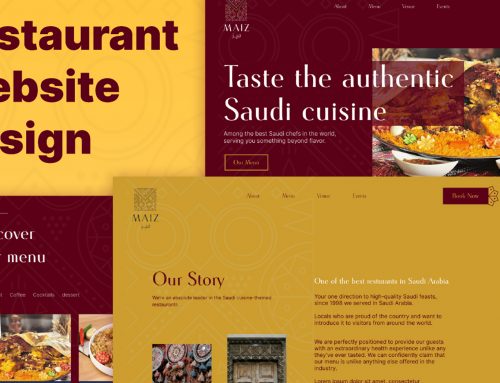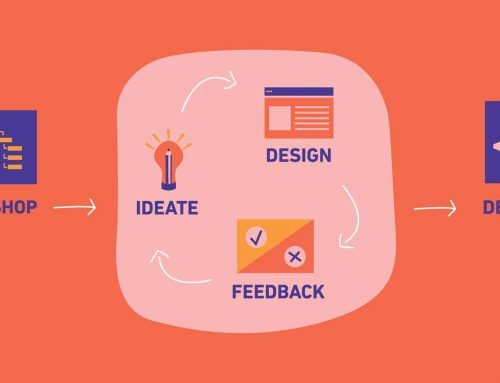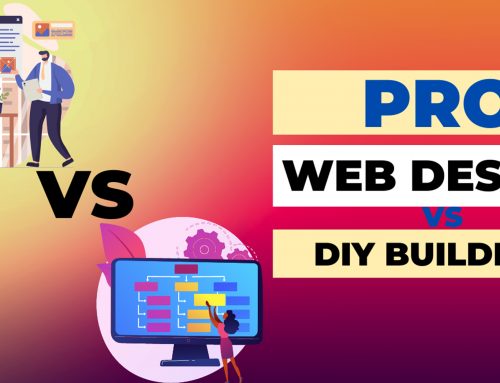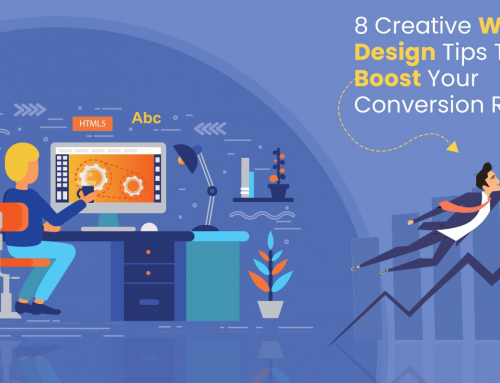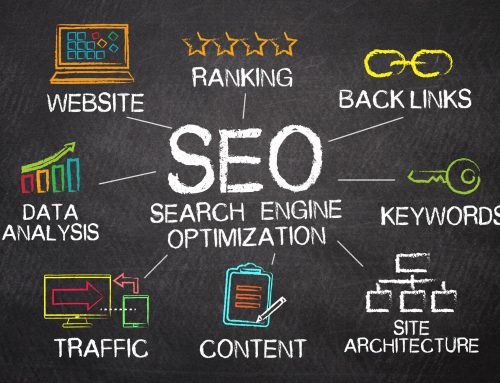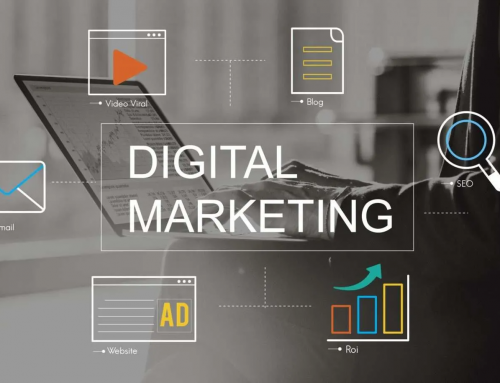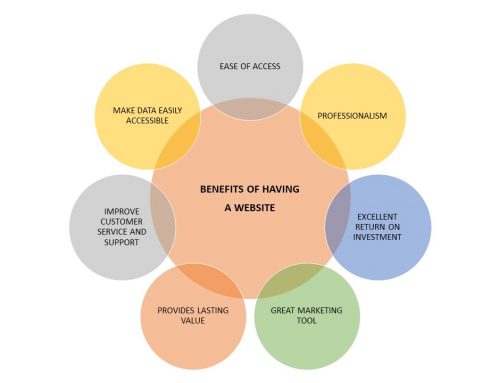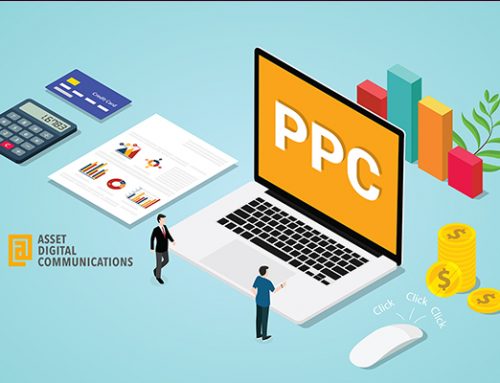Responsive Web Design: Enhancing Mobile Experience in Birmingham
In today’s fast-paced digital era, the importance of mobile experience cannot be overstated, especially for businesses in Birmingham, Alabama. As smartphones become an integral part of people’s lives, consumers increasingly rely on their mobile devices to access information, make purchases, and engage with businesses. In this dynamic landscape, ensuring a seamless and enjoyable mobile experience has become a necessity for Birmingham businesses to thrive and stay ahead of the competition.
Enter responsive web design—an innovative approach that adapts to the diverse array of screen sizes and devices used by consumers. Responsive web design empowers businesses to create websites that look and function flawlessly across desktops, tablets, and mobile phones. Gone are the days of zooming in and scrolling endlessly to view content; responsive websites automatically adjust to the user’s screen, delivering a user-friendly and visually appealing experience.
The purpose of this article is to delve into the world of responsive web design and explore its significance for Birmingham businesses. We will unravel the benefits of embracing this cutting-edge design philosophy, as well as its impact on mobile presence. As the online landscape evolves, businesses in Birmingham must recognize the pivotal role responsive web design plays in captivating the ever-growing mobile audience and driving business success.
Join us as we embark on this journey to uncover the potential of responsive web design and its transformative power for Birmingham businesses in enhancing their mobile experience. Let’s discover how this innovative approach can set the stage for unprecedented growth and increased customer engagement in the thriving digital market of Birmingham.
The Rise of Mobile Usage in Birmingham
In recent years, Birmingham has witnessed a significant surge in mobile usage, transforming the way consumers interact with businesses and access online content. As mobile technology continues to evolve, it has become an indispensable tool for people’s daily lives, redefining the landscape for businesses in the city.
- Growing Trend of Mobile Usage: With the widespread availability of smartphones and faster internet connectivity, mobile usage has experienced exponential growth in Birmingham. Consumers now have the world at their fingertips, accessing information, services, and products with unparalleled ease. The convenience of mobile devices has led to a shift in consumer behavior, with an increasing number of people relying on their phones for various activities.
- Increasing Reliance on Mobile Devices: Mobile devices have become central to how consumers browse the internet, conduct searches, and interact with online services. From searching for nearby restaurants and shopping for products to booking appointments and staying connected on social media, mobile devices serve as indispensable companions in everyday life. The prevalence of mobile apps further amplifies the role of mobile devices in streamlining tasks and enhancing convenience.
- Impact on Birmingham Businesses: The rapid rise of mobile usage has had a profound impact on businesses in Birmingham. Traditional methods of marketing and reaching customers have given way to digital strategies that prioritize mobile-first approaches. Businesses now recognize that a significant portion of their target audience primarily engages with their brand through mobile devices. Consequently, having a mobile-friendly online presence has become critical for capturing and retaining customers.
- The Need for Responsive Web Design: To meet the demands of the mobile-savvy consumer base, Birmingham businesses must embrace responsive web design. A responsive website automatically adjusts its layout and content to suit the screen size of the device being used. Whether a customer accesses the website from a smartphone, tablet, or desktop computer, responsive design ensures a consistent and optimized experience.
The absence of a responsive website can result in frustrated users, high bounce rates, and missed opportunities for engagement. Furthermore, search engines like Google prioritize mobile-friendly websites in their rankings, making responsive web design a crucial factor in search engine optimization (SEO). By adopting responsive web design, businesses can deliver a seamless and user-friendly mobile experience, gaining a competitive edge in the increasingly mobile-driven market of Birmingham.
The rise of mobile usage in Birmingham has redefined the way businesses engage with their audience. Consumers’ growing reliance on mobile devices for browsing, searching, and accessing online services underscores the need for responsive web design. By adapting to the mobile-first landscape, Birmingham businesses can create websites that cater to the preferences of their audience, enhance customer experiences, and stay at the forefront of the dynamic digital market. Embracing responsive web design is not just a trend; it is a strategic move that empowers businesses to thrive in the ever-evolving world of mobile technology.
Understanding Responsive Web Design
Definition and Principles of Responsive Web Design
Responsive web design is an innovative approach to web development that focuses on creating websites that seamlessly adapt and respond to the user’s device, screen size, and orientation. It employs a set of design principles and technical techniques to ensure optimal user experiences across a wide range of devices, from desktop computers to smartphones and tablets.
At its core, responsive web design is guided by three key principles:
- Fluid Grids: Responsive websites use fluid grids, which are designed based on proportions rather than fixed pixel measurements. This allows the layout to adjust proportionally to the user’s screen size, ensuring that the website’s elements and content remain balanced and visually appealing across all devices.
- Flexible Images: To prevent images from becoming too large or too small on different devices, responsive web design employs flexible images that can scale up or down according to the screen size. This ensures that images maintain their clarity and visual impact, regardless of the device used.
- Media Queries: Media queries are CSS rules that enable the website to detect the characteristics of the user’s device, such as screen size, resolution, and orientation. Based on this information, the website can apply different styles and layouts to provide an optimized user experience.
Benefits of Responsive Web Design for Birmingham Businesses
- Improved User Experience: A responsive website offers a seamless and consistent user experience across all devices. By eliminating the need for users to pinch, zoom, or scroll excessively, businesses in Birmingham can enhance user satisfaction and reduce bounce rates. This positive experience encourages users to spend more time on the website, explore its content, and ultimately increases the likelihood of conversions.
- Increased Mobile Traffic: With the growing reliance on mobile devices for online activities, a responsive website is essential for attracting and retaining mobile users. By catering to the needs of mobile visitors, businesses can tap into the increasing mobile traffic and reach a broader audience in Birmingham.
- Enhanced Search Engine Visibility: Search engines prioritize user experience in their ranking algorithms. Responsive web design ensures that content remains consistent across devices, thereby improving the website’s usability and search engine friendliness. As a result, responsive websites are more likely to rank higher in search engine results, increasing their visibility to potential customers in Birmingham.
Key Elements of Responsive Web Design
- Flexible Grids: The use of fluid grids allows the website’s layout to adapt and reorganize content to fit different screen sizes. Elements like text, images, and navigation menus adjust automatically to maintain a visually balanced presentation.
- Media Queries: Media queries enable the website to detect the user’s device characteristics and apply specific styles accordingly. This ensures that the website’s layout, font sizes, and image resolutions adjust appropriately to suit the screen size and orientation of the device.
- Fluid Images: By using fluid images, responsive web design prevents images from being too small or too large on various devices. This ensures that images remain clear and visually appealing, regardless of the screen size.
- Mobile Navigation: In Birmingham’s diverse mobile landscape, easy navigation is crucial. Responsive web design incorporates mobile-friendly navigation menus, such as collapsible menus or hamburger icons, to enhance user experience on smaller screens.
- Touchscreen Compatibility: Responsive web design considers the touch-based interactions of mobile devices. It ensures that buttons and interactive elements are appropriately sized and spaced for easy touch interaction on touchscreens.
Responsive web design has become an essential strategy for businesses in Birmingham to optimize their mobile experience and stay competitive in the digital market. By understanding the principles, benefits, and key elements of responsive web design, businesses can create websites that deliver consistent and engaging user experiences across all devices. Embracing responsive web design empowers businesses to reach a wider audience, increase mobile traffic, and improve search engine visibility, positioning them for success in Birmingham’s mobile-driven landscape.
Impact on User Experience and Engagement
Consistent User Experience Across Devices
Responsive web design plays a pivotal role in delivering a consistent user experience across desktop, mobile, and tablet devices. By automatically adapting to various screen sizes and orientations, responsive websites provide users with a familiar and seamless journey, regardless of the device they use. For Birmingham businesses, this consistency is key to maintaining brand identity and ensuring that users can access information and services effortlessly.
A responsive website’s adaptability ensures that essential elements such as logos, color schemes, and content layouts remain consistent across devices. Users can easily recognize and associate with the brand, fostering trust and brand loyalty. Whether a customer interacts with the website on their desktop at home, their smartphone on the go, or their tablet during leisure time, the cohesive user experience enhances engagement and encourages return visits.
Improved Mobile Navigation and Interactions
Responsive web design optimizes navigation and user interactions on mobile devices, acknowledging the importance of intuitive design in Birmingham’s mobile-centric market. Mobile users seek efficiency and ease of use, and responsive design caters to these expectations.
Responsive websites employ mobile-friendly navigation, such as collapsible menus, hamburger icons, or sticky navigation bars, making it effortless for users to explore different sections of the website on smaller screens. Intuitive menus enhance user satisfaction and encourage longer session durations, increasing the likelihood of conversions for Birmingham businesses.
Moreover, responsive design tailors interactive elements to be touch-friendly, recognizing the touchscreen nature of mobile devices. Buttons and call-to-action elements are adequately sized and spaced, reducing the likelihood of accidental taps and enhancing the overall user experience.
The streamlined presentation of content on mobile devices is another advantage of responsive design. Content is organized to fit smaller screens, eliminating the need for users to zoom in or out to read information. This optimization ensures that users can easily access relevant content, further contributing to engagement and positive interactions.
Faster Page Load Times and Performance
Responsive web design also impacts page load times and overall website performance, crucial factors for mobile users in Birmingham’s fast-paced environment. Responsive websites eliminate the need for separate mobile versions, reducing server requests and enabling faster loading times.
Fast-loading websites are highly valued by mobile users who demand instant access to information on the go. Slow-loading sites frustrate users and increase bounce rates, leading to missed opportunities for engagement and conversions. With responsive design, Birmingham businesses can deliver a smooth and efficient browsing experience, keeping users engaged and satisfied.
Moreover, website performance is a significant factor in search engine rankings. Search engines like Google consider page speed as part of their ranking algorithm, meaning that responsive websites with faster load times are more likely to rank higher in search results. This improved search engine visibility further benefits Birmingham businesses by attracting more organic traffic and potential customers.
Responsive web design has a profound impact on user experience and engagement for Birmingham businesses. By ensuring a consistent experience across devices, improving mobile navigation, and optimizing page load times, responsive design enhances user satisfaction and fosters higher levels of engagement. Birmingham businesses that embrace responsive web design stand to benefit from increased brand loyalty, higher user retention, and improved search engine visibility, driving their success in the mobile-centric landscape.
SEO Benefits of Responsive Web Design
Mobile-Friendly Design and SEO Rankings
Responsive web design is highly regarded by search engines due to its alignment with their guidelines and emphasis on mobile-friendliness. Search engines, especially Google, prioritize delivering the best user experience to their users. As the majority of online searches now come from mobile devices, having a mobile-friendly website has become a crucial factor in search engine rankings.
Responsive web design ensures that a single website adapts to various screen sizes, providing a seamless user experience across all devices. This mobile-friendly approach eliminates the need for search engines to differentiate between separate desktop and mobile versions of a site, streamlining their indexing process. As a result, search engines can crawl and index content more efficiently, which positively impacts the website’s overall SEO performance.
For Birmingham businesses, embracing responsive web design can lead to improved search engine rankings, increased organic traffic, and enhanced visibility in local search results. As search engines recognize the website’s mobile-friendliness and responsiveness, they are more likely to prioritize it in mobile search results, ultimately driving more targeted traffic to the site.
Avoidance of Duplicate Content and SEO Efficiencies
In the past, some businesses opted for separate mobile and desktop versions of their websites to cater to different devices. However, this approach posed challenges in terms of SEO, as it often led to duplicate content issues and inconsistent URL structures.
With responsive web design, Birmingham businesses avoid these SEO pitfalls. Since a responsive website adjusts its layout and content based on the device used, there is no need for duplicate pages or multiple URLs. This unified approach ensures that search engines index a single version of the website, preventing any duplicate content penalties and preserving the website’s SEO authority.
Additionally, having a consistent URL structure across all devices is beneficial for SEO. Users and search engines alike prefer a consistent and coherent website structure, which can contribute to a positive user experience and better search engine rankings. Responsive web design ensures that the website’s URL remains consistent, regardless of the device being used, further enhancing its SEO efficiency.
By streamlining content and avoiding duplicate pages, Birmingham businesses can focus on creating high-quality, relevant content that resonates with their target audience and boosts their search engine rankings. This optimized approach not only saves time and resources but also strengthens the website’s authority in search engine algorithms.
The SEO benefits of responsive web design are paramount for Birmingham businesses looking to achieve higher search engine rankings and attract more organic traffic. The alignment with search engine guidelines, improved mobile-friendliness, avoidance of duplicate content, and SEO efficiencies gained through unified content and consistent URL structures make responsive web design an indispensable strategy in the competitive online landscape. By embracing responsive design, Birmingham businesses can position themselves for greater visibility, increased customer engagement, and long-term success in the digital realm.
Case Studies: Birmingham Businesses Embracing Responsive Web Design
- “Lloyd’s Restaurant“: Savor the Flavors on Any Device
Indulge in a delightful experience at Lloyd’s Restaurant, a renowned eatery in Birmingham that understands the importance of catering to diners on every device. With the majority of their patrons browsing on mobiles, they embraced responsive web design.
Outcome: Lloyd’s Restaurant witnessed a significant boost in mobile experience. Their website’s seamless adaptability allowed customers to explore the delectable menu, view mouthwatering images, and make reservations effortlessly on their smartphones. This user-friendly encounter resulted in increased mobile traffic, longer session durations, and a surge in online reservations.
- “Edwards Orthodontics“: Smiling with Ease, Anywhere
Edwards Orthodontics, a leading orthodontic practice in Birmingham, set its sights on enhancing the mobile experience for patients and potential clients alike. Recognizing the significance of responsive web design, they embarked on a transformative journey.
Outcome: The implementation of responsive design proved to be a game-changer for Edwards Orthodontics. Patients and visitors experienced streamlined navigation, easily accessing information about services and treatment options from their mobile devices. The intuitive layout and touch-friendly elements contributed to a remarkable increase in mobile inquiries and appointment requests. Edwards Orthodontics now boasts a strong mobile presence, attracting more smiles to their clinic and fostering lasting patient relationships.
Implementation and Best Practices for Responsive Web Design
Implementing responsive web design for Birmingham businesses involves a series of crucial steps to ensure a seamless and successful transition to a mobile-friendly online presence.
- Define Objectives and Audience: Start by understanding the specific objectives of the website and the target audience in Birmingham. Identify the key elements and functionalities that need to be prioritized for mobile users.
- Choose a Responsive Framework: Select a responsive web design framework that suits the business’s needs and technical requirements. Popular frameworks like Bootstrap and Foundation offer a range of pre-built responsive components and layouts to expedite the development process.
- Mobile-First Approach: Adopt a mobile-first approach to design and development. Begin by designing the mobile version of the website first, ensuring that the core content and functionalities are optimized for smaller screens. Then progressively enhance the layout for larger devices.
- Fluid Grids and Media Queries: Implement flexible grids and media queries to ensure that the website adjusts seamlessly to various screen sizes and orientations. Use breakpoints to define specific layout changes based on different device widths.
- Optimize Images and Media: Optimize images and media for fast loading on mobile devices. Use modern image formats and compression techniques to reduce file sizes without compromising quality.
- Test Across Devices: Thoroughly test the responsive website on a variety of devices, including smartphones, tablets, and desktops. Ensure that all elements are displayed correctly, and interactions are smooth across different screen resolutions and orientations.
Best Practices for Creating Responsive Websites:
- Performance Optimization: Prioritize performance optimization to ensure fast-loading pages and a smooth user experience. Minimize HTTP requests, leverage browser caching, and enable compression to reduce page load times.
- User-Centric Design: Focus on user experience and intuitive navigation. Ensure that call-to-action buttons and essential information are easily accessible on mobile devices. Streamline content presentation to avoid overwhelming users with excessive information.
- Cross-Browser Compatibility: Test the website across various web browsers to ensure consistent functionality and appearance. Address any compatibility issues promptly to provide a seamless experience to all users.
- Ongoing Maintenance: Regularly update and maintain the responsive website to accommodate evolving user needs and technical advancements. Stay updated with the latest best practices and technologies in responsive web design.
- Accessibility: Ensure that the responsive website is accessible to users with disabilities. Use semantic HTML, provide alternative text for images, and maintain color contrast ratios for better inclusivity.
By following these implementation steps and best practices, Birmingham businesses can create a user-friendly and efficient responsive website. The focus on mobile experience and the continuous optimization of the website will not only attract and retain users but also contribute to improved search engine rankings and increased online visibility. With a well-executed responsive web design, Birmingham businesses can stay ahead in the mobile-driven market and deliver a superior online experience to their valued customers.
Utilize Responsive Web Design
In the dynamic digital landscape of Birmingham, responsive web design has emerged as a fundamental element in enhancing mobile experience and meeting the demands of a mobile-savvy audience. Throughout this article, we explored the significance of responsive web design for Birmingham businesses, highlighting its impact on user experience, SEO benefits, and online presence.
Responsive web design ensures a consistent user experience across devices, catering to the diverse preferences of Birmingham’s tech-savvy consumers. By embracing this approach, businesses can foster brand loyalty, increase mobile traffic, and improve search engine rankings, positioning themselves for success in the competitive market.
The case studies of Birmingham businesses implementing responsive web design exemplify how this approach can drive remarkable outcomes in terms of engagement, conversions, and customer satisfaction. Emphasizing the importance of intuitive mobile navigation, faster page load times, and unified content, responsive design empowers businesses to provide a seamless mobile experience that resonates with their audience.
As Birmingham’s online landscape continues to evolve, prioritizing responsive web design becomes paramount for businesses seeking to stay competitive and meet the evolving needs of mobile users. By adopting this user-centric and forward-thinking approach, Birmingham businesses can establish themselves as industry leaders, captivate their audience, and thrive in the fast-paced world of mobile technology. Let responsive web design be the catalyst that elevates your business’s online presence and success in Birmingham’s digital realm.




